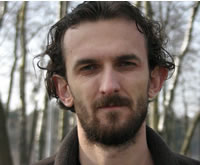Benefits of a scholarship to attend the National Fundraising Convention

Alexander Zhibrik, director of ACET in Minsk, Belarus, a member of ACET International Alliance, won a full international scholarship from the Association of Fundraising Professionals to attend the Institute of Fundraising National Convention in London last year. This is his account of the experience.

The Convention met all of my expectations from the academic and professional point of view, and for me even such short-term studies as these three days of Convention were one of the greatest learning opportunities I’ve ever had in my life. I was overwhelmed by the scale of humanitarian work, number of the resources that are available for social and charitable organisations in the UK. However, if you were to ask me what most precious treasure I took with me from the UK back to Belarus, the answer is very simple – it is relationships and friendships.
Advertisement
Of course, being at different sessions and learning from such experienced lecturers gave me a great amount of inspiration and a lot of new ideas for what could be done by my organisation for the good of my country, but I guess this is what Convention exists for.
However, there were things that no-one could afford to pay for and I was lucky to receive them freely. Timothy Burcham, Andrew Watt and Paulette Maehara of the AFP were very kind to spend a lot of their time with me and gave me the chance to meet some other AFP leaders. I can already see great benefits from those personal meetings. Several days after I came back home we started to talk with John Baguley of the IFC about the possibility of conducting a workshop on fundraising in Belarus, which we have now scheduled for August 2009.
To speak about fundraising in Belarus is difficult for me because I’m not heavily involved in this area and information is not freely available on fundraising here. However, I can mention some things mainly making my comments based on observation of recently issued Belarus decrees.
The adoption of the decree of the President of the Republic of Belarus about “obtaining and using foreign humanitarian aid” and the subsequent adoption of the decree about “some measures for the improvement of the order of obtaining and using humanitarian aid” caused serious problems for the Belarussian organisations that are in the process of obtaining finance from abroad.
The first serious problem with obtaining grants from abroad has to do with the necessity to register them at the Department of Humanitarian Aid in order to get permission from the government to use these funds.
The second problem is caused by the very limited list of purposes for which Belarussian organisations can obtain financing from abroad. And if it were possible to fight with the bureaucratic obstacles (registration, work only through the Belarussian banks etc) outlined in the decree, and finally have some hope of getting financing officially, then the above mentioned standard actually deprives the organisation of the ability to act legally, since the number of purposes for which foreign aid is allowed is so limited as follows:
* overcoming the consequences of extraordinary situations of natural and technogenic nature;
* conducting scientific studies, developments, education and also for the implementation of scientific research programmes;
* assistance to protect, restore and create historical cultural values, to develop nature/conservation reserves;
* rendering medical aid;
* rendering social aid to the poor and socially unprotected citizens;
* other purposes determined by management of the affairs of the President according to the agreement with the President.
The last point has not yet been finalised, so it is theoretically possible to use foreign financing for other purposes. However, for this it is necessary to obtain permission signed by the President himself and this very procedure is unclear.
The list of purposes covers projects of social an scientific nature, saying nothing about social and political projects, against which, in principle, the decree is directed. It is also impossible to use foreign financing for anything to do with the media.
The Belarussian Government is seriously concerned about where funds come from and by central objectives of Belarussian organisations wishing to use foreign aid. It seems to me really difficult to measure consequences of the adoption of this decree, but it is possible to make several assumptions.
First of all, the decree will force some organisations to look for illegal ways of obtaining foreign humanitarian aid, since the decree will not allow them to get finance officially.
Secondly, the decree will create additional problems when the Belarussian official authorities try to portray Belarus as a free and democratic state.
Also for those social organisations that still have to work with foreign means officially, it will become considerably more difficult to work, so it will slow down the development of the third sector in the country. The sector is already very small compared with western European countries such as the UK.
For example, in 2004 the total number of religious organisations in Belarus was 2,829. There were 124 social organisations, including 38 of international and republican status. All of them are involved in realisation of cultural, educational, humanitarian and other programmes.
Coming back to the decree, it doesn’t say anything about obtaining humanitarian aid from organisations and individuals within the State, which points to the fact that this kind of fundraising is still not very widespread in Belarussian society.
I believe that Belarus has a lot to do in the area of charitable and social work. Our country has a lot of great needs, but it also has a great potential to provide the solution to them. Most importantly in most cases the answer can be found in the generous hearts of Belarussian people.
Alexander Zhibrik
ACET International Alliance
www.acet-international.org/international.htm



